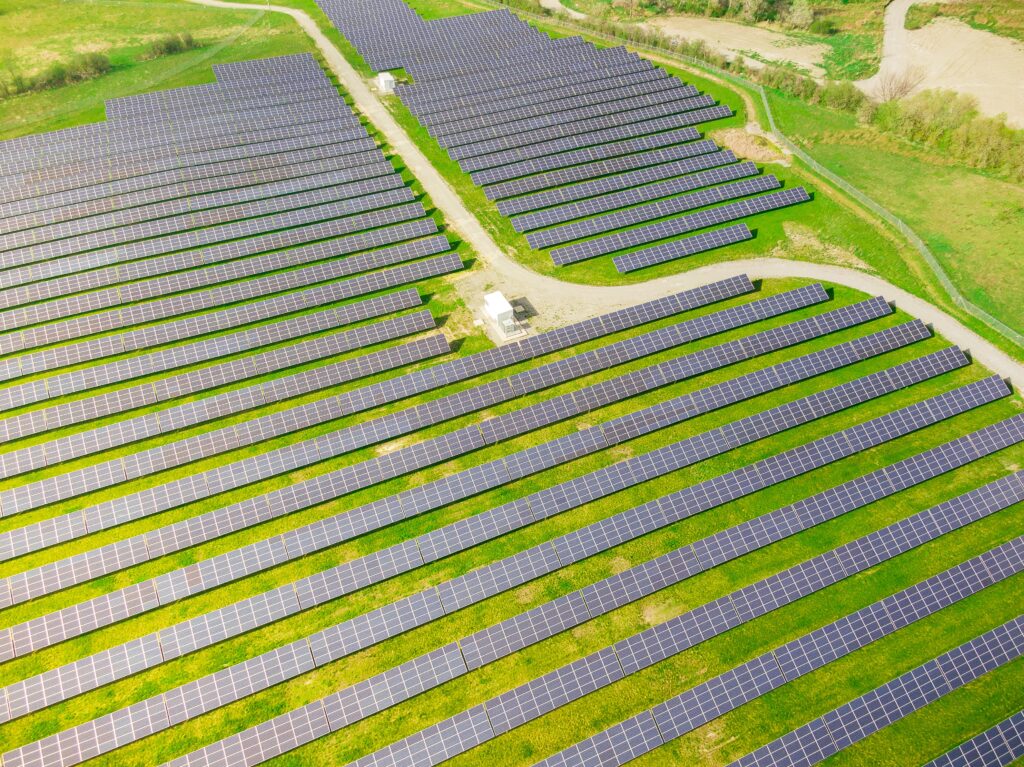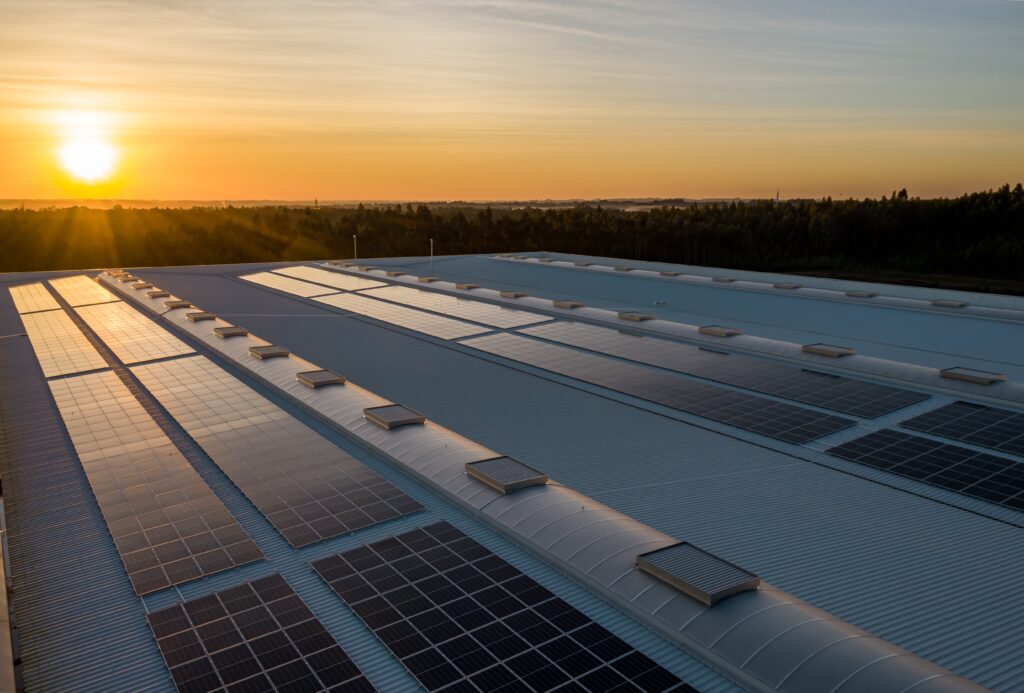If you’re considering investing in a solar generator, you may be wondering whether or not you’ll still need gas to power it. Well, here’s the good news – a solar generator runs entirely on the power of the sun! That means you can say goodbye to the hassle of refueling with gas and hello to a cleaner, greener energy source. In this article, we’ll explore the benefits of using a solar generator and why it may be the perfect solution for your power needs. So, let’s get started and uncover the world of gas-free energy!

Understanding the Fundamentals of Solar Generators
What is a Solar Generator?
A solar generator is a device that converts sunlight into usable electricity. It utilizes solar panels to capture the energy from the sun and store it in a battery. This stored energy can then be used to power various electrical devices and appliances, providing an eco-friendly and sustainable alternative to traditional generators.
How Solar Generators Work
Solar generators work by harnessing the power of sunlight through the use of photovoltaic (PV) cells. These cells are typically made of silicon and have the ability to convert sunlight into direct current (DC) electricity. The DC electricity is then converted into alternating current (AC) electricity through an inverter, making it compatible with standard electrical devices.
The Basic Components of a Solar Generator
A typical solar generator consists of several key components, including:
-
Solar Panels: These panels are made up of multiple PV cells arranged in a grid-like pattern. They capture sunlight and convert it into electricity.
-
Charge Controller: The charge controller regulates the flow of electricity from the solar panels to the battery. It helps prevent overcharging and extends the lifespan of the battery.
-
Battery: The battery is where the generated electricity is stored. It serves as a reservoir of energy that can be accessed and used when needed.
-
Inverter: The inverter converts the DC electricity from the battery into AC electricity, which is the standard form of electricity used by most appliances and devices.
-
Electrical Outlets: These outlets allow you to connect and power your electrical devices using the generated electricity.
Common Types of Generators
Gas Generators
Gas generators, also known as gasoline generators, use an internal combustion engine that runs on gasoline or petrol. They are commonly used during power outages or in construction sites where access to electricity is limited. Gas generators are relatively affordable and can provide a high power output, making them suitable for heavy-duty applications.
Diesel Generators
Similar to gas generators, diesel generators also use an internal combustion engine. However, they run on diesel fuel instead of gasoline. Diesel generators are known for their fuel efficiency and durability, making them a popular choice in industrial and commercial settings. They are often preferred in situations where a long runtime and a consistent power supply are required.
Propane Generators
Propane generators, also referred to as LPG (liquefied petroleum gas) generators, operate using propane as their fuel source. Propane is a clean-burning fuel that is readily available and has a longer shelf life compared to gasoline and diesel. Propane generators are commonly used for outdoor activities such as camping and tailgating, as well as in residential settings as a backup power source.
Solar Generators
Solar generators, as mentioned earlier, rely on sunlight to generate electricity. They are considered a sustainable and eco-friendly alternative to traditional generators that rely on fossil fuels. Solar generators do not emit harmful gases or produce noise pollution, and their energy source is renewable and abundant. They are commonly used for a variety of applications, including camping, emergency preparedness, and powering small electronic devices.
Comparing Solar Generators and Gas Generators
Energy Source
Solar generators derive their energy from the sun, which is a renewable and abundant source. On the other hand, gas generators rely on fossil fuels such as gasoline or diesel, which are finite resources. Solar generators have an advantage in terms of long-term sustainability and environmental impact.
Environmental Impact
Gas generators emit harmful gases such as carbon monoxide, nitrogen oxides, and particulate matter, contributing to air pollution and greenhouse gas emissions. Solar generators, on the other hand, produce clean and green energy with zero emissions. They help reduce pollution and combat climate change.
Cost Over Time
Gas generators require a constant supply of fuel to operate, which can result in ongoing expenses. The cost of gasoline or diesel can fluctuate, and fuel availability may be a challenge in certain situations. Solar generators, once installed, have minimal operating costs since they rely on sunlight, which is free. However, there is an initial investment required for the purchase and installation of solar panels and other components.
Maintenance Required
Gas generators require regular maintenance, including oil changes, filter replacements, and periodic inspections. They also need to be started and run occasionally to keep the engine in good condition. Solar generators, on the other hand, have fewer moving parts and require minimal maintenance. Cleaning the solar panels and checking the battery are the primary maintenance tasks for solar generators.
Do Solar Generators Require Gas?
Understanding the Energy Source for Solar Generators
Solar generators do not require gas as their energy source. They rely solely on sunlight to generate electricity. The solar panels capture the sun’s energy and convert it into electricity, which is stored in a battery for later use. This makes solar generators a renewable and sustainable option for powering your electrical devices.
Why Gas is Unnecessary for Solar Generators
Gas is unnecessary for solar generators because they operate independently of fossil fuel sources. Solar generators utilize the energy from the sun, which is a free and abundant resource. By harnessing solar power, you can eliminate the need for gas or any other fossil fuel, making solar generators a clean and eco-friendly solution for your power needs.

Benefits of Solar Generators over Gas Generators
Environmental Friendliness
Solar generators have a significant advantage over gas generators in terms of environmental impact. Solar generators produce clean, renewable energy without the emission of harmful gases or pollutants. They contribute to cleaner air, reduce reliance on fossil fuels, and help combat climate change.
Energy Efficiency and Sustainability
Solar generators are highly energy-efficient as they directly convert sunlight into electricity. They harness the power of the sun, which is an abundant and renewable resource. With proper placement and sun exposure, solar generators can consistently generate electricity without depleting any finite resources.
Quiet Operation
Gas generators are notorious for their loud operation, often causing noise pollution and inconvenience. In contrast, solar generators operate silently since they have no moving parts aside from the occasional running of a fan for cooling purposes.
Lower Operating Costs
While there is an initial investment required for purchasing and installing solar panels, solar generators have minimal operating costs in the long run. Once installed, solar generators rely on free sunlight to generate electricity, eliminating the need for ongoing fuel expenses. This can result in significant savings over time, especially when compared to gas generators that require a constant supply of fuel.
Limitations of Solar Generators
Dependence on Weather Conditions
solar generators rely on sunlight to function, which means they are affected by weather conditions. Cloudy days or lack of direct sunlight can impact the amount of energy generated by solar panels. This may limit the charging capability of the generator and affect its overall performance.
Energy Storage Capacity
The storage capacity of the battery in a solar generator determines the amount of energy that can be stored and used when sunlight is not available. If the battery capacity is insufficient, it may not be able to power larger appliances or devices for an extended period. It’s essential to consider the energy storage capacity when choosing a solar generator, especially for applications with higher power demands.
Higher Initial Investment
While solar generators offer long-term cost savings, the initial investment can be higher compared to gas generators. The cost of solar panels, battery storage, and inverter systems can add up, especially for larger capacity generators. However, it’s important to consider the long-term benefits, lower operating costs, and positive environmental impact when evaluating the overall value of a solar generator.

Optimizing Solar Generator Usage
Proper Placement for Maximum Sun Exposure
To optimize the performance of a solar generator, proper placement of the solar panels is crucial. They should be positioned in an area that receives the maximum amount of sunlight throughout the day. This usually means placing the panels in direct sunlight without any shading from trees, buildings, or other obstructions.
Regular Maintenance and Cleaning
Solar panels require regular maintenance to ensure optimal performance. Cleaning the panels periodically to remove dirt, dust, and debris is essential. Accumulated dirt can hinder the absorption of sunlight, reducing the efficiency of the panels. Additionally, checking the battery regularly and performing any necessary maintenance or replacement can help extend the lifespan of the solar generator.
Ensuring Adequate Energy Storage
Determining the energy storage capacity of a solar generator is vital to meet your power requirements. It’s important to assess your energy needs and choose a generator with a battery capacity that can adequately store and supply enough power for your devices or appliances. Understanding the power consumption of your electrical devices can help in selecting the right solar generator for your needs.
Hybrid Generators: A Combination of Gas and Solar
How Hybrid Generators Work
Hybrid generators combine the advantages of both gas generators and solar generators. They typically consist of a gas-powered generator and a solar panel system, allowing for dual energy sources. The generator can be used as a backup power source when sunlight is limited or during high power demand situations.
Advantages of Hybrid Generators
Hybrid generators offer increased versatility and flexibility compared to standalone gas or solar generators. The gas-powered component ensures a continuous power supply, even in situations where sunlight is scarce. The solar panels contribute to reducing fuel consumption and provide cleaner and greener energy when sunlight is available. Hybrid generators provide a reliable and efficient solution for powering electrical devices in various scenarios.
Disadvantages of Hybrid Generators
One of the main disadvantages of hybrid generators is the increased complexity and maintenance requirements. Having both a gas generator and a solar panel system means additional components and potential points of failure. Managing the fuel supply, maintaining both the gas generator and the solar panels, and understanding the system’s integration can be more demanding and time-consuming compared to standalone generators.
Future of Solar Generators
Technological Advancements
The field of solar energy continues to advance, leading to improvements in solar generator technology. Ongoing research and development efforts focus on increasing the efficiency of solar panels, enhancing energy storage capabilities, and reducing the overall cost of solar generator systems. advancements in battery technology and energy management systems are also contributing to the continued growth and innovation in the solar generator industry.
Potential Impact on Energy Sector
As solar generator technology progresses and becomes more accessible, it has the potential to disrupt the traditional energy sector. Solar power has already made significant strides in residential applications, and its use in remote areas, disaster relief efforts, and off-grid living is expanding. Solar generators offer a decentralized and reliable source of electricity, reducing dependence on centralized power grids and fossil fuel-based generators.
Expected Trends in Solar Generator Use
The adoption of solar generators is expected to continue to grow in the coming years. Increasing environmental awareness, government incentives, and the desire for energy independence are among the driving factors. The advancements in solar technology, coupled with falling costs, are making solar generators a more viable and attractive option for a wide range of applications, from residential to commercial and industrial settings.
Deciding Between a Solar Generator and a Gas Generator
Assessing Your Energy Needs
When deciding between a solar generator and a gas generator, it’s essential to assess your energy needs. Consider the power requirements of the electrical devices you wish to power and how long you expect to run them. This will help determine the appropriate generator capacity and whether a solar generator can meet your needs.
Calculating the Cost-Benefit Analysis
Compare the initial and ongoing costs of both solar generators and gas generators. Calculate the payback period of a solar generator by considering the savings on fuel expenses over time. Balance this against the lower initial cost of a gas generator but the continuous fuel expenses it requires. Take into account the potential maintenance costs and the lifespan of each generator.
Considering Environmental Impact
Evaluate the environmental impact of both solar generators and gas generators. Consider the emissions produced by gas generators and the contribution to air pollution and climate change. Compare this to the clean and renewable energy generated by solar panels. If reducing your carbon footprint and supporting sustainable energy sources are important to you, a solar generator may be the more environmentally friendly choice.
Looking at Long-Term Sustainability
Consider the long-term sustainability of the power source. Solar generators rely on sunlight, a renewable resource, whereas gas generators consume finite fossil fuels. Take into account the potential availability and cost of fuel sources. Solar generators provide a more sustainable energy solution, especially in situations where fuel access may be limited or expensive.
In conclusion, understanding the fundamentals of solar generators is essential when considering alternative power sources. Solar generators offer a renewable, sustainable, and eco-friendly solution to powering your electrical devices. While they may have limitations regarding weather conditions and initial investment, their long-term benefits in terms of cost savings, environmental impact, and energy efficiency make them a compelling choice. By optimizing solar generator usage, considering hybrid options, and keeping an eye on future advancements in solar technology, you can make an informed decision between a solar generator and a gas generator that aligns with your energy needs, budget, and environmental goals.




